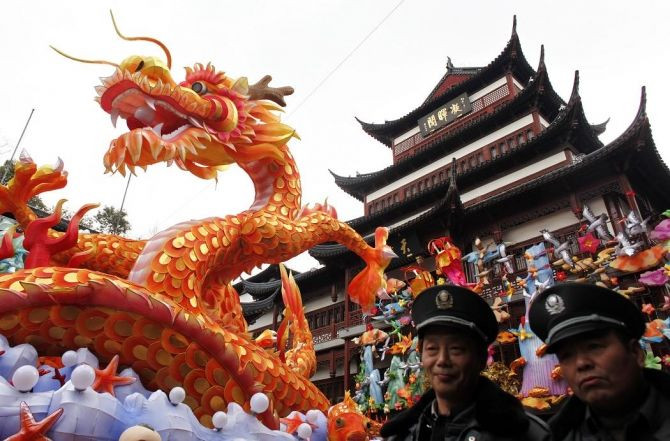Asian Countries Expect a Baby Boom in the Coming Dragon Year

As the year of the dragon approaches, many Chinese couples have been trying for a baby to be born in what they believe to be the most auspicious year.
The dragon is the only mythical creature among the 12 animals of the Chinese zodiac. The Chinese regard the dragon as a symbol of strength and intelligence, and was a sign that was reserved for past emperors of China.
The year of the dragon begins next Monday on the Jan. 23, and many dragon babies have already been prepared to make an entrance.
China, Hong Kong, Taiwan and countries like Singapore with a large Chinese population have all experienced big baby booms in previous dragon years, like in the millennium Hong Kong had a 5 percent rise in the number of births, according to official statistics. Asian officials also expect a baby boom in other Asian countries like South Korea, Vietnam and Macau.
Many of these East Asian counties have extremely low birth rates, suggesting that young couples in these rapidly developing societies choose quality of life and career advancement over child rearing responsibilities. However, the Year of the Dragon seems to be breaking the trend.
A survey in Hong Kong showed that 70 percent of couples there wanted children born under the dragon sign, and South Korea, Vietnam and China all reported similar enthusiasm about dragon-year childbearing.
Taiwan has one of the lowest birth rates in the world. That circumstance has worried Taiwanese officials for the past decade. They have tried to increase the island’s low fertility rate, which stands at less than one child for every Taiwanese women of childbearing age in 2010. The figure that year was at 0.9 children per woman, a drop from 1.03 children per woman the previous year. The Taiwanese government has tried to encourage families with cash incentives. These include a $100 monthly child care stipend, $330 from the government for delivering the first baby. That amount is doubled and tripled for the second and third baby.
However, the Year of the Dragon has previously boosted Taiwan’s birthrate. In 2000, the rate increased to 1.7 children per Taiwanese women of childbearing age from 1.5 the previous year.
Dr. Chen Shee-Uan, director of reproductive endocrinology and infertility at the National Taiwan University Hospital predicted that there will be an increase of 20 to 30 percent in the number of babies delivered at the hospital this year, and he expected the same spike for the number of in vitro fertilization treatments at his clinic, according to the BBC.
In December, China’s state news agency Xinhua reported that the country was expecting a five percent increase in the number of babies in 2012, and led to a spike in baby product manufacturers and companies offering pre-natal and infant care services within the country.
Many mainland Chinese mothers have already gone to Hong Kong for delivery preparation and to dodge the one-child policy and for rights of abode education for their future children. Last week many Hong Kong mothers with pushchairs protested amid fears of further influx, and authorities have taken steps to limit the number of deliveries by Chinese mainlanders and foreigners in both public and private hospitals.
However, the boom is not expected to last. Until the next dragon year, and especially next year in the year of the snake, there will most likely be a decline in birth.
Dr Zhang Yanxia, a visiting research fellow at the East Asian Institute in Singapore said that although there will be a dramatic increase in birth rates in 2012, the “dragon baby boom” is unlikely to make a significant impact on total fertility rates in the long run, according to the BBC.



























